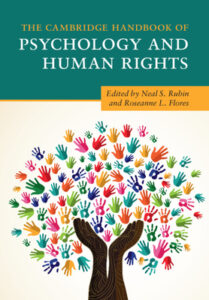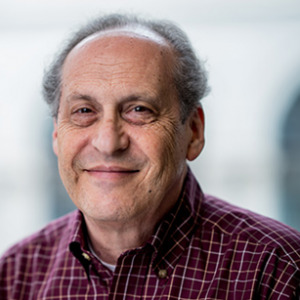Know any students or classmates who are integrating human rights into the science, application, and intervention models in psychology?
Nominate them for the newly established Neal S. Rubin/Roseanne L. Flores Student Research Awards in Psychology and Human Rights, established by the American Psychological Association’s Division of International Psychology (Division 52) and named after the award-winning duo behind the book, “The Cambridge Handbook of Psychology and Human Rights.”
“This scholarship — however small — is an opportunity to highlight the visions and the voices of young people into how they see psychology and human rights intersect, and how they plan to advance human rights in our profession,” said Adler University professor Neal Rubin, Ph.D., ABPP, who co-edited the book.
Nominations — welcomed from anywhere in the world — are due March 15. Award recipients will receive a check for $100 and will be recognized at Division 52 meetings at the APA Annual Convention. An undergraduate and graduate student will be chosen annually.

The book brought together over 100 psychologists, historians, and lawyers to demonstrate the central role psychological science plays in addressing some of the world’s most pressing problems.
The creation of the scholarship also comes as the APA recently approved a resolution that places human rights as fundamental to the mission and values of the association, including encouraging the growth and development of human rights research in psychology.
The scholarship was established after Dr. Rubin and Roseanne L. Flores, Ph.D., professor in the Department of Psychology Hunter College at City University of New York, donated their monetary reward after winning the Ursula Gielen Global Psychology Award in 2021. The award recognizes the authors or editors of a book “that makes the greatest contribution to psychology as an international discipline and profession, or more specifically, the degree to which the book adds to our understanding of global phenomena and problems from a psychological point of view.”
“This is our way of paying it forward,” Dr. Rubin said. “And we’ll continue paying it forward for years to come.”
“The Cambridge Handbook of Psychology and Human Rights” brought together over 100 psychologists, historians, and lawyers to demonstrate the central role psychological science plays in addressing some of the world’s most pressing problems. The experts from around the world highlighted what psychologists have done and continue to do to promote human rights.
Challenging the view that human rights are best understood through a political lens, the scholarly collection of essays shows how psychological science may hold the key to nurturing humanitarian values and respect for human dignity.
The book came about in 2016 after an editor approached Drs. Rubin and Flores about writing a book on human rights and psychology following an International Congress of Psychology meeting in Yokohama, Japan. It was published in 2020. It was a finalist of the Association of American Publishers Awards for Professional and Scholarly Excellence (PROSE Awards).
“In establishing this new scholarship award, we hope we inspire students to explore and to think critically about the intersection of psychology and human rights,” Dr. Rubin said.
Visit the Neal S. Rubin/Roseanne L. Flores Student Research Awards in Psychology and Human Rights pagefor more information and to submit a nomination.

